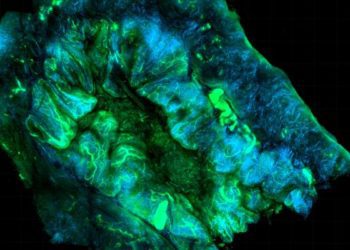Hypoglycemia in the critically ill leads to increased risk of death [NEJM]
Image: CC
Key study points:
1. Critically ill patients with intensive glucose control are much more likely to have moderate or severe hypoglycemia than patients with conventional glucose control.
2. In critically ill patients, moderate and severe hypoglycemia are both associated with an increased risk of death.
Primer: Hyperglycemia is often associated with critical illness, and is thought to be due to several different factors such as increased stress hormones, gluconeogenesis, glycogenolysis, and insulin resistance. While severe hyperglycemia is associated with higher morbidity and mortality in intensive care unit (ICU) patients, there has been mixed results in terms of the best approach to glycemic control. The landmark NICE-SUGAR study (2009) was a large, international randomized trial, indicated that intensive glucose control (target 81-108mg/dL) was associated with increased mortality among adults in the ICU when compared to conventional glucose control (<180mg/dL). While the study was not designed to identify a causative factor, one of the possible posited causes was hypoglycemia. Hence the authors wanted to examine the NICE-SUGAR study data to examine the association of hypoglycemia and risk of death.
This [post-hoc] study: The NICE-SUGAR study database included follow-up data for 6,026 critically ill patients who were randomly assigned to intensive or conventional glucose control. Severe hypoglycemia was defined as blood glucose values below 40mg/dL and moderate hypoglycemia as 41-70mg/dL. Of the 6,026 patients, 2,714 (45.0%) had moderate hypoglycemia, and 82.4% of this group came from the intensive glucose control treatment group. Severe hypoglycemia was noted in 223 patients, of which 93.3% came from the intensive glucose control group. The adjusted hazard ratio for death among patients with moderate or severe hypoglycemia was 1.41 (1.21-1.62, p<0.001) and 2.10 (1.59-2.77, p<0.001), respectively. The association with death was higher in patients who had moderate hypoglycemia on more than one day and those who died from distributive shock.
In sum: The large sample size of the study allows for confirmation of the association between hypoglycemia and increased risk of death that has been previously shown in smaller studies. Causality cannot be established in this study. While a causal relationship is possible, hypoglycemia may also represent a marker of a disease process that confers a predisposition to death. The American Diabetes Association (2012) currently recommends a target blood glucose of 144-180mg/dL in critically ill patients in order to reduce the risk of hypoglycemia.
Click to read the article in NEJM
By RR
© 2012 2minutemedicine.com. All rights reserved. No works may be reproduced without written consent from 2minutemedicine.com. DISCALIMER: Posts are not medical advice and are not intended as such. Please see a healthcare professional if you seek medical advice.






